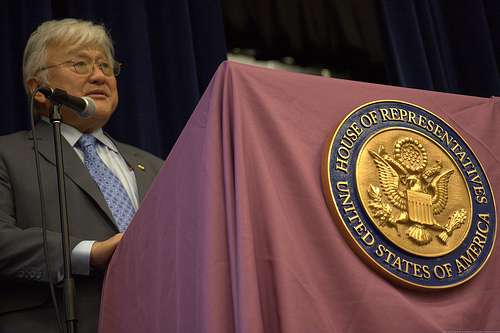UNITED SIKHS Achieves Long Sought Victory in Obtaining Release of a Sikh Victim of Torture from Japanese Detention: However, the Fight Continues
Highlights:
- Sikh victim of Indian torture and abuse, Bharpoor Singh, reunited with wife and three children in Tokyo
- Mr. Singh released from Japanese immigration detention after being separated from his family for over nine months
- U.S. congressman, UNITED SIKHS and the Sikh community played a pivotal role in petitioning his release, however, his asylum hearing is now pending
TOKYO, JAPAN: Bharpoor Singh has been jubilantly reunited with his wife and young children after being detained by immigration officials in Japan for over nine months. Gursharan Jeet Kaur, Mr. Singh’s wife, did not know whether she would ever see her husband again. Mr. Singh has originally sought refuge in Japan and fled India because he had been tortured multiple times by the police.
For almost a year, UNITED SIKHS attorneys have reached out to U.S. lawmakers and the Japanese Foreign Ministry to secure the release of Bharpoor Singh. Current Senior Staff Attorney Hansdeep Singh and former UNITED SIKHS Attorneys Jaspreet Singh and Harpreet Singh continually advocated both domestically and internationally to secure Mr. Singh’s release.
However, none of this could have happened without the contributions of Congressman Mike Honda and his aide Ken Takeda. Congressman Mike Honda (D-CA), the lead sponsor of the Reuniting Families Act and a tireless champion for family unification, was instrumental in lobbying for Singh’s release by contacting the Japanese Ambassador.

Mike Honda
Currently Mr. Singh will be seeking asylum from the Japanese government. He is not yet allowed to work, but his release means he can be with his family while awaiting his immigration trial. It has been an incredibly enduring feat to remain separated from one’s family for almost a year.
Since Mr. Singh was the sole breadwinner, his detention placed a huge burden on Mrs. Kaur to try and raise the couple’s two sons and daughter despite her own ill health and lack of income. Due to her health issues, Mrs. Kaur had difficulty even completing simple tasks such as cooking for her children.
Bharpoor Singh’s story is an incredible tale of suffering. In 1992, He used a fake passport to flee India and escape torture at the hands of the Punjabi police. Initially, he was arrested by the Punjab police on false charges. Then, he was tortured and released after a Judge ruled there was no valid reason for his detention.
After his release from prison in the Punjab, he was placed under constant surveillance by the police and was consistently arrested whenever a crime would occur in the area. He was forced to live in a constant state of fear until he was finally able to make arrangements to flee the country. Singh has been a resident in Tokyo since June 1992.
Bharpoor Singh says: “After 9/11 the world is a much scarier place for those whose religious beliefs require them to wear turbans or other articles of faith that makes them look different – especially if they are traveling through immigration at airports. With the potential torture and abuse that exists in India for minorities like Sikhs, we are between a rock and a hard place. We are only trying to earn money, feed our families and survive. Being released – albeit pending an asylum trial – is a testament to the hope and freedom to live this way”.
Congressman Mike Honda, an active immigration reformer and largely responsible for the passage of the Reuniting Families Act in California, says: “As someone who believes in the humane treatment of immigration detainees in America, I felt compelled to do what I could to help Mr. Singh when I was contacted by UNITED SIKHS. The kind of rights I lobby for on the behalf of immigrants in the U.S. should be universal. They should especially be practiced in situations where the person is a victim of torture seeking asylum and has a family who are directly affected by his plight. I commend the Japanese authorities for seeing the bigger picture and releasing Mr. Singh. I wish him luck on his pending asylum trial”.
UNITED SIKHS Legal Director, Jaspreet Singh, says: “As a community that has a large diaspora population, it is important for Sikhs in established communities to join together and advocate for the rights of those Sikhs, like Bharpoor Singh, who were forced to flee from their homes in India due to persecution, but now find themselves in difficult situations in countries where they have attempted to settle.”
Cynthia Keppley Mahmood, an academic at University of Notre Dame in Indiana and expert on human rights abuses against Sikhs in the Punjab, says human rights abuses against Sikhs are no longer as obvious or rampant as they were in the Punjab of the 1980’s and 1990’s. “Some observers believe that it is safe to return people to that state without further concern,” says Mahmood. “As a student of the Punjab my educated opinion is that although the worst abuses have abated – enforced disappearances and extrajudicial executions – torture, arbitrary detention, and custodial rape continue and are widespread”. She adds that though India is celebrated as the world’s largest democracy, “it is not a benign place for many of its citizens”.
UNITED SIKHS would like to thank the tireless and dogged efforts of Jaspreet Singh, Harpreet Singh Sandhu, Harpreet Singh (former UNITED SIKHS Attorney, now with the Department of Justice CRS Division), and Hansdeep Singh to make this happen. Thanks to our organization, Voices for Freedom, for keeping the Japanese immigration agency informed with latest updates on the continuing human rights abuses in India.
Please read more about our work tackling hate crime and raising human rights awareness.
Issued By:
Herpreet Kaur
PR and Media Associate
1-888-243-1690
law-usa@unitedsikhs.org



